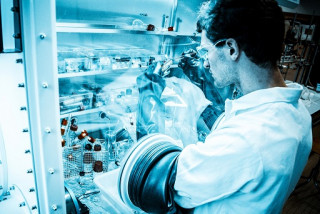Chemical Engineering: What is it and what are the career opportunities?

This article will look at Chemical Engineering in detail, explaining what it is, what studying it is like and what the career opportunities are.
What is chemical engineering?
What do I have to study?
Is it hard?
What will I learn?
Is chemical engineering a good degree?
Can I change to a different kind of engineering?
What kind of jobs can I get?
Chemical engineering is all about changing raw materials into useful products such as clothes, food and drink, and energy. Chemical engineers focus on processes and products – they develop and design processes to create products; either focussing on improving existing processes or creating new ones. This means that they are also concerned with managing resources, protecting the environment and health and safety. Chemical engineers are sometimes called ‘universal engineers’ because it is such a broad discipline - they are essentially concerned with transforming one thing into another.
What do I have to study for chemical engineering as a degree?
Many people are unsure about the amount of chemistry involved in a chemical engineering degree. Ultimately, as with all engineering degrees, physics and maths are the most important elements of the course, with around 20% of the course related to chemistry – particularly physical chemistry. There are some elements of chemical engineering that are related to biology, but these would typically be more specialised areas. If you would like to specialise in chemistry, then a chemical engineering degree is probably not for you.
Chemical engineering is undeniably challenging – it involves a lot of physics and maths and is likely to involve a high number of exams at degree level. However, it is also varied and interesting and if you are comfortable with the scientific requirements, committed to persevering and genuinely interested in the subject you are likely to succeed.
What will I learn from a chemical engineering degree?
There are typically two kinds of Chemical Engineering degree – Bachelors of Engineering and Masters of Engineering – the MEng will typically last 1-2 years longer, so is the more in-depth degree. Whether you’re studying a BEng or a MEng, you’ll start your degree with core chemical engineering courses such as pure and applied mathematics, computing and physics. You will then develop your understanding of these areas, with opportunities to specialize in different areas. You will also have the opportunity to do advanced work in the laboratory and large scale and industrial equipment. You will also learn about the ethical, environmental and financial issues that are part of the wider context of chemical engineering.
Maths and physics are both good subjects to take as a minor with chemical engineering, as they will complement your studies and help your understanding of core concepts.
Is chemical engineering a good degree?
Among the general public, there is not a lot of understanding about what chemical engineers actually do, and it is a relatively new discipline. However, most employers will respect the strong elements of science and maths, and recognise that it is a challenging degree, so despite it being a relatively unknown subject, it is recognised as an academic degree that develops useful skills.
Can I change to a different kind of engineering?
One thing people are always curious about is whether chemical engineers can become another kind of engineer – such as a nuclear, petroleum or environmental engineer. This is definitely possible because chemical engineering develops a very broad range of skills. However, many engineering disciplines require a high degree of specialization, so although chemical engineering is a good basis, you would probably have to undertake a postgraduate study in order to change disciplines.
What kind of jobs can I get as a chemical engineering major or graduate?
There are a wide range of industries that utilize chemical engineers, including pharmaceutical, energy and information technology. These roles will involve developing existing processes and creating new methods for altering materials. There are also other sectors and careers which utilize the skills developed in a chemical engineering degree – including quality assurance, manufacturing, and consultancy. Depending on the role there are some risks associated working as a chemical engineer, as you can be exposed to health or safety hazards handling chemicals and working with plant equipment. However, risks can be avoided if safety procedures are followed. There are excellent opportunities for chemical engineering graduates; prospects for higher earnings in the profession are good. Work in certain industries, for example, oil and contracting, will attract particularly high salaries.
Related jobs
